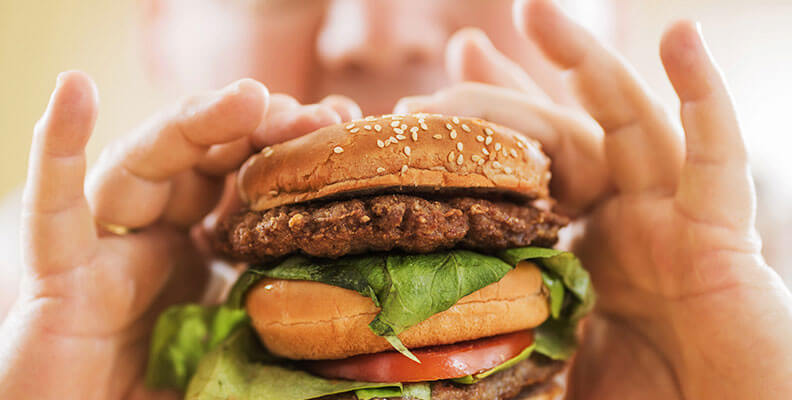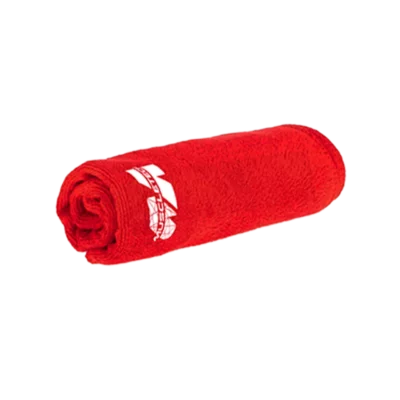Have you been diligently hitting the gym but still have weight clinging to your body like sticky taffy? Has summer passed and you still don’t have your summer body? If so, chances are it boils down to a couple of simple training and nutritional errors that may be grinding your progress to a halt.
Here are 12 of the most common reasons you’re not losing weight from a nutrition, training and lifestyle perspective. healthy diet.
NUTRITION
In any sport, be it bodybuilding, competitive sports or any other sports, right nutrition is pivotal to any training. Many a times some basic errors can be detrimental in your fitness goals, and you might find it difficult losing weight, thus impacting your journey.
Let us understand the basic flaws that are responsible for impacting the nutrition and that often give you trouble losing weight.
1. Not tracking calories
Do you track your calorie intake on a daily basis or do you guesstimate it? One of the main reasons that you are not losing weight is that you are consuming extra calories than your target calorie intake. If you’re only guessing, there is a high probability that you consume and load more calories than you are supposed to have. If you’re serious about weight loss, then you have to start tracking everything you put in your mouth. It is important that you follow a planned diet if you want to lose weight.
Being disciplined towards your diet is important. Pay attention to your calories, and which food sources they come from. It is also wise to be well informed about the nutrition that you are consuming. For those who are pro level athletes or have a very serious attitude towards their fitness goals, they weigh the food, and consume it accordingly. If weighing your food is impossible, use at app like MyFitnessPal, which has nearly every food and supplement you can think of already programmed in.
2. Not tracking the calories from your supplements
Your supplements are complimenting your fitness journey and are the most important part of your nutrition, but do you count these calories into your total intake? So, you’re measuring and weighing your foods, but not tracking your supplements? You’d better start! Your nutrition intake, that is your protein shakes, your smoothies, and everything that you consume are to be included in the calorie intake for the day. Everything from protein powders to post-workouts contain calories that, when added on top of your food intake, could be pushing you over your maintenance level for calories. Whenever you calculate your calorie intake for the day, ensure that you add the supplements into it.
3. Not getting enough protein
Are you getting enough protein in your diet? Are you focusing on a balanced and healthy diet that has enough protein to fulfill your requirement for the day. On an average, one should consume at least one gram per pound of bodyweight if you’re training hard. From the available protein sources, meats, Poultry, Sea food, and the other vegetarian sources, you must include an appropriate portion in your diet. And add your favourite WHEY PROTEIN SUPPLEMENT that doesn’t have additional calories from fat and carbs, like NITRO-TECH®, to ensure you’re hitting your goals for this important macro. This will help you complete your protein intake, while maintaining your calories.
4. Poor pre-/during/post-training nutrition
Are you consuming the right nutrition throughout the day, especially during pre/post workout ? You will be surprised to know that this makes a marked difference in your fitness journey. Yes, this is important! Observe closely, what do you consume pre, during and post-workout ? A lot of people who are struggling with their weight are catabolic in and around their workout because they don’t feed their muscles with the proper macro- and micronutrients to optimize insulin response for optimal recovery. Consuming fast-acting protein immediately after training, along with muscle-sparing carbs, will help your body hold on to more metabolically active muscle, which will increase your BMI and allow you to burn more calories throughout the day.
5. Too much processed foods
If you are careful about your calorie intake, yet have trouble losing weight, then maybe you need to have a check on your intake of processed foods. If you are majorly choosing readymade meals ,in a box/packet foods or if the majority of your meals come from a box, are heated in a microwave or are handed to you through a drive-through window – it’s likely the main reason why are you still unable to lose weight. Processed foods are generally high on sodium, and the ingredients have much preservatives that are not good for health, and hamper your fitness journey to a large extent.
Your fitness journey will at its best when you have freshly prepared food, and rely on fresh ingredients for your meals. So, fall in love with the fresh vegetables, fruits and get the fresh protein sources from your local butcher or fish market.
6. Portion Size
Another very important factor responsible for keeping you in check is your portion size. Any kind of food intake, even if it is healthy food, if taken in excess, will be an obstacle and will give you difficulty in losing weight. Controlling your portion size for each meal, whether pre-workout or post workout is essential to keep your calorie intake on check.
TRAINING AND LIFESTYLE
Another very important factor responsible for keeping you in check is your portion size. Any kind of food intake, even if it is healthy food, if taken in excess, will be an obstacle and will give you difficulty in losing weight. Controlling your portion size for each meal, whether pre-workout or post workout is essential to keep your calorie intake on check.
7. You skip leg day
Leg training is strenuous; leg training is painful; get over it! Your legs and posterior chain are also the largest muscle groups and biggest calorie burners. Make leg day a priority, and plan your workout so that you work out the legs every week. Learn to love leg day, as consistent leg training will also increase your natural levels of testosterone and growth hormone.
8. You never change your workouts
You might be very consistent and regular in your training, but often after a long time of doing the same workout pattern leads to a plateau, and you see no change in your body. Once you are comfortable, the body will get used to a particular kind of workout. If you don’t shock your body and change things up at least every 6 to 8 weeks, your body knows what to expect. You need to challenge your body when you train and include a variety of different workouts or variation of exercises. You can keep your workout pattern the same, but include a different variety of exercises to keep your workouts more effective. Also, you may alter your rep ranges to truly test your limits in the gym. Ditch the comfort and try something new for better results.
9. No cardio or only cardio
Too much of cardio can never give you the desired results. And if you doing only cardio training, and not doing any kind of weight training, then too, you can never have the results. Losing weight will become difficult. Too much cardio and no strength training mean you’re not building the muscle mass to continue to sustain a calorie burn. Cardiovascular exercises means a healthy heart, a higher blood volume being pumped + a lower heart rate. A more effective heart means more blood pumping to your muscles. So, strike a balance here if you want to see the best of the results.
10. Poor sleeping habits
Sleep is the best recovery. TRAIN EAT SLEEP REPEAT, right? Having a good quality sleep is of paramount importance. Just as sleep affects your daily grind, it affects how well your body’s metabolic rates work. Sleep means recovery! Insomnia and disturbed sleep often lead to obesity. Muscles recover through protein synthesis and your body basically goes into reset and rebuild mode when you sleep. It’s important to ensure you are getting good quality sleep at least most of the time.
11. Lack of training volume
Progressive overload and a regimen is something that all lifters should follow. Many lifters fear overtraining and, as a result, don’t get to enough training in each month – meaning that they don’t repeat the same body part in the next weeks training. In this way if there’s a gap in training, then you won’t see effective results. Whether you follow a routine that has work on two body parts a day, or a routine that has one body part a day with cardio and other exercises, you need to peat the pattern post recovery. In addition, if you’re looking to get lean, your training frequency and volume need to be high – and five to six training sessions a week should be what you aim for.
12. Life outside training
Are you active enough only in the gym or during your training period? Are you so tired that you need much time to recover after you blast your workout? As a result, are you sedentary throughout the day ? Your active lifestyle outside the gym is very important, and you need to be staying active throughout the day. If you are sitting a lot, or your work doesn’t allow you to move much, you should conscientiously be making an effort towards movement, walking a few steps every now and then. Your training and your nutrition have the main role to play but you can’t ignore this. Also staying hydrated is essential for optimal results.


